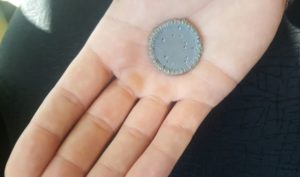DRC poised to declare cobalt a strategic metal

Cobalt metal.

The Democratic Republic of Congo (DRC) is set to declare cobalt a strategic metal, a move that will increase the royalty tax on the metal to 10% from 3.5%.
The announcement means a further increase in costs for miners such as Glencore PLC and China Molybdenum Co. Ltd., which have previously been impacted by the implementation of a new mining code in the DRC in June, 2018.
“Strategic substances will be defined in a decree issued by the prime minister in the coming days,” DRC Mines Minister Martin Kabwelulu told reporters Saturday in Kolwezi in southeastern Congo, according to a report by Bloomberg News Service.
“You will see that the prime minister will sign this decree, which will declare cobalt and certain other substances as strategic.”
The new mining code raised royalty payments not only on cobalt, but also on copper, gold and introduced new taxes.
As the DRC currently accounts for about 54% of the world’s cobalt production, any increase in the cost of doing business there may only tighten the supply of a commodity that has been one of top performer in the global metals sector,
Citi Research is a division of Citigroup Global Markets Inc. recently predicted that the price of cobalt could rise by a further 20% over the next two years.
Cobalt, which is produced primarily as a by-product of copper and nickel, has recently become a hot investment area due to its key role in the production of rechargeable batteries used in the manufacture of electric vehicles.
According to Darton Commodities Ltd., a specialty supplier of cobalt metal products, Cobalt’s role in delivering energy efficiencies across a number of sectors has been increasing. Darton expects that cobalt use in lithium-ion batteries could be poised to grow at an average annual rate of approximately 12% from 2016 to 2022.
Glencore and China Molybdenum will be among the companies most impacted by the declaration of cobalt as a strategic metal. Glencore’s Mutanda unit was the world’s largest miner of the metal in 2017, producing more than 23,000 tonnes. China Molybdenum owns Tenke Fungurume Mining, which mined almost 17,000 tonnes of cobalt last year.
As cobalt is produced as a by-product of other metals, production cannot easily be increased to meet demand. Therefore, the latest announcement from the DRC will likely motivate the vast bulk of major consumers and traders in the cobalt market to try and lock in additional supplies.
Specifically, battery producers and car manufacturers (including Apple, Samsung, SDI Co. Volkswagen and other major consumers as per media reports) have been signing deals or in talks with various producers to secure future supply or build stocks.
Amnesty International has warned electric car companies to seek out alternatives to the DRC, which is well known for its mineral wealth, but also civil wars and corruption.
